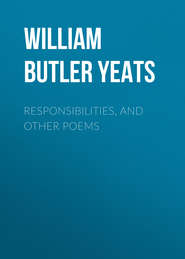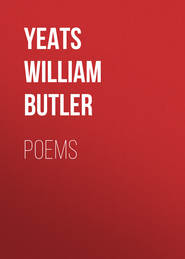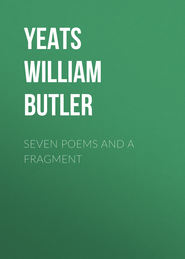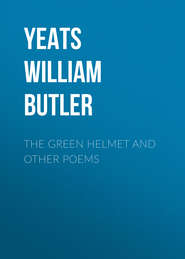По всем вопросам обращайтесь на: info@litportal.ru
(©) 2003-2024.
✖
Per Amica Silentia Lunae
Настройки чтения
Размер шрифта
Высота строк
Поля
Per Amica Silentia Lunae
William Yeats
William Butler Yeats
Per Amica Silentia Lunae
PROLOGUE
My Dear “Maurice” – You will remember that afternoon in Calvados last summer when your black Persian “Minoulooshe,” who had walked behind us for a good mile, heard a wing flutter in a bramble-bush? For a long time we called her endearing names in vain. She seemed resolute to spend her night among the brambles. She had interrupted a conversation, often interrupted before, upon certain thoughts so long habitual that I may be permitted to call them my convictions. When I came back to London my mind ran again and again to those conversations and I could not rest till I had written out in this little book all that I had said or would have said. Read it some day when “Minoulooshe” is asleep.
W. B. YEATS.
May 11, 1917.
EGO DOMINUS TUUS
Hic
On the grey sand beside the shallow stream,
Under your old wind-beaten tower, where still
A lamp burns on above the open book
That Michael Robartes left, you walk in the moon,
And, though you have passed the best of life, still trace,
Enthralled by the unconquerable delusion,
Magical shapes.
Ille
By the help of an image
I call to my own opposite, summon all
That I have handled least, least looked upon.
Hic
And I would find myself and not an image.
Ille
That is our modern hope, and by its light
We have lit upon the gentle, sensitive mind
And lost the old nonchalance of the hand;
Whether we have chosen chisel, pen, or brush,
We are but critics, or but half create,
Timid, entangled, empty, and abashed,
Lacking the countenance of our friends.
Hic
And yet,
The chief imagination of Christendom,
Dante Alighieri, so utterly found himself,
That he has made that hollow face of his
More plain to the mind’s eye than any face
But that of Christ.
Ille
And did he find himself,
Or was the hunger that had made it hollow
A hunger for the apple on the bough
Most out of reach? And is that spectral image
The man that Lapo and that Guido knew?
I think he fashioned from his opposite
An image that might have been a stony face,
Staring upon a Beduin’s horse-hair roof,
From doored and windowed cliff, or half upturned
Among the coarse grass and the camel dung.
He set his chisel to the hardest stone;
Being mocked by Guido for his lecherous life,
Derided and deriding, driven out
To climb that stair and eat that bitter bread,
He found the unpersuadable justice, he found
The most exalted lady loved by a man.
Hic
Yet surely there are men who have made their art
Out of no tragic war; lovers of life,
Impulsive men, that look for happiness,
And sing when they have found it.
Ille
No, not sing,
For those that love the world serve it in action,
Grow rich, popular, and full of influence;
And should they paint or write still is it action,
The struggle of the fly in marmalade.
The rhetorician would deceive his neighbours,
The sentimentalist himself; while art
Is but a vision of reality.
What portion in the world can the artist have,
Who has awakened from the common dream,
But dissipation and despair?
Hic
And yet,
No one denies to Keats love of the world,
William Yeats
William Butler Yeats
Per Amica Silentia Lunae
PROLOGUE
My Dear “Maurice” – You will remember that afternoon in Calvados last summer when your black Persian “Minoulooshe,” who had walked behind us for a good mile, heard a wing flutter in a bramble-bush? For a long time we called her endearing names in vain. She seemed resolute to spend her night among the brambles. She had interrupted a conversation, often interrupted before, upon certain thoughts so long habitual that I may be permitted to call them my convictions. When I came back to London my mind ran again and again to those conversations and I could not rest till I had written out in this little book all that I had said or would have said. Read it some day when “Minoulooshe” is asleep.
W. B. YEATS.
May 11, 1917.
EGO DOMINUS TUUS
Hic
On the grey sand beside the shallow stream,
Under your old wind-beaten tower, where still
A lamp burns on above the open book
That Michael Robartes left, you walk in the moon,
And, though you have passed the best of life, still trace,
Enthralled by the unconquerable delusion,
Magical shapes.
Ille
By the help of an image
I call to my own opposite, summon all
That I have handled least, least looked upon.
Hic
And I would find myself and not an image.
Ille
That is our modern hope, and by its light
We have lit upon the gentle, sensitive mind
And lost the old nonchalance of the hand;
Whether we have chosen chisel, pen, or brush,
We are but critics, or but half create,
Timid, entangled, empty, and abashed,
Lacking the countenance of our friends.
Hic
And yet,
The chief imagination of Christendom,
Dante Alighieri, so utterly found himself,
That he has made that hollow face of his
More plain to the mind’s eye than any face
But that of Christ.
Ille
And did he find himself,
Or was the hunger that had made it hollow
A hunger for the apple on the bough
Most out of reach? And is that spectral image
The man that Lapo and that Guido knew?
I think he fashioned from his opposite
An image that might have been a stony face,
Staring upon a Beduin’s horse-hair roof,
From doored and windowed cliff, or half upturned
Among the coarse grass and the camel dung.
He set his chisel to the hardest stone;
Being mocked by Guido for his lecherous life,
Derided and deriding, driven out
To climb that stair and eat that bitter bread,
He found the unpersuadable justice, he found
The most exalted lady loved by a man.
Hic
Yet surely there are men who have made their art
Out of no tragic war; lovers of life,
Impulsive men, that look for happiness,
And sing when they have found it.
Ille
No, not sing,
For those that love the world serve it in action,
Grow rich, popular, and full of influence;
And should they paint or write still is it action,
The struggle of the fly in marmalade.
The rhetorician would deceive his neighbours,
The sentimentalist himself; while art
Is but a vision of reality.
What portion in the world can the artist have,
Who has awakened from the common dream,
But dissipation and despair?
Hic
And yet,
No one denies to Keats love of the world,











